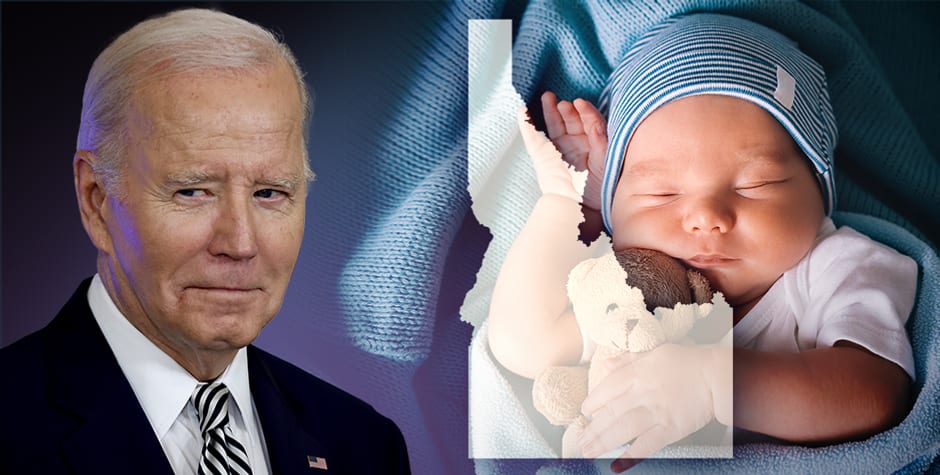Biden’s Solicitor General Makes Startling Admission at the Supreme Court in Idaho Abortion Case
Listen tothis article
Joe Biden has been called the most pro-abortion President in history, and understandably so. Yet every now and then something slips out from his Administration that crosses up the pro-abortion narrative, such as when Biden referred to choosing “to abort a child” instead of using some more obscure term like “fetus” or “pregnancy.”
Now add to the list Solicitor General Elizabeth Prelogar’s admission that it would be “incredibly unethical” to do an abortion on a woman in a mental health emergency. Prelogar, the Biden Administration’s top Supreme Court advocate, made the point in a Supreme Court case involving the Biden Administration’s attempt to override Idaho’s abortion ban using a federal statute, the Emergency Medical Treatment and Labor Act (EMTALA). (We filed an amicus brief in the case, supporting Idaho’s pro-life law.)
Abortion advocates often claim that the mother’s health will benefit from terminating her pregnancy and killing the baby in her womb. As we have pointed out elsewhere, “For the abortion lobby, health is a universal justification for abortion. . . . Thus, a restriction with a ‘health’ exception is really no restriction at all.” Mental health is often used as an excuse to abort a child, making such “health” exceptions swallow the rule. In fact, abortion advocates claim that women are more likely to die from pregnancy and childbirth than from aborting the child, an embarrassingly false claim that we have refuted repeatedly, including in an amicus brief we filed in the Dobbs Supreme Court case that overturned Roe v. Wade.
Perhaps unsurprisingly, abortion apologists also claim a woman’s mental health requires access to abortion (a claim refuted elsewhere). The pro-abortion party line is that abortion is simply good for women’s health, both physical and mental.
It was, therefore, quite surprising to hear Prelogar, on behalf of the Biden Administration, disavow the appropriateness of abortion for dealing with mental health crises. Here is the exchange she had with Justice Samuel Alito:
Transcript of Oral Argument at 76–78:
JUSTICE ALITO: Let me ask you squarely the question. . . . Does the term “health” in EMTALA mean just physical health, or does it also include mental health?
GENERAL PRELOGAR: There can be grave mental health emergencies, but EMTALA could never require pregnancy termination as the stabilizing care.
JUSTICE ALITO: Why?
GENERAL PRELOGAR: And here’s why. It’s because that wouldn’t do anything to address the underlying brain chemistry issue that’s causing the -- the mental health emergency in the first place. This is not about mental health generally. This is about treatment by ER doctors in an emergency room. And when a woman comes in with some grave mental health emergency, if she has happens to be pregnant, it would be incredibly unethical to terminate her pregnancy. She might not be in a position to give any informed consent. Instead, the way you treat mental health emergency is to address what’s happening in the brain. If you’re having a psychotic episode, you administer antipsychotics.
JUSTICE ALITO: Well, I -- I really want a simple, clear-cut answer to this question so that going forward everybody will know what the federal government’s position is. Does “health” mean only physical health, or does it also include mental health?
GENERAL PRELOGAR: With respect to what qualifies as an emergency medical condition, it can include grave mental health emergencies, but let me be very clear about our position. That could never lead to pregnancy termination because that is not the accepted standard of practice to treat any mental health emergency.
Prelogar is right, of course. Killing the child does not remedy a psychological problem, and more likely, the abortion will make matters worse. But how rare it is to hear an abortion advocate admit it!
We were also pleased that the argument we pressed in our amicus brief, which was what remedies a court can order under EMTALA, received attention in the oral argument as well.
We will keep you updated as the Supreme Court considers this case.
